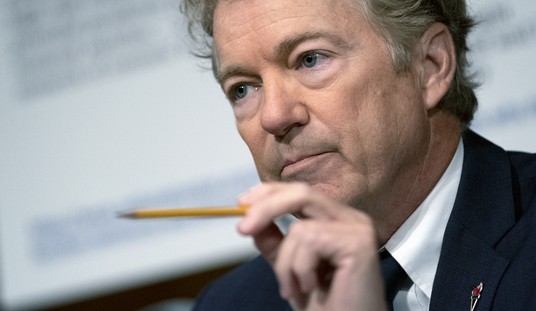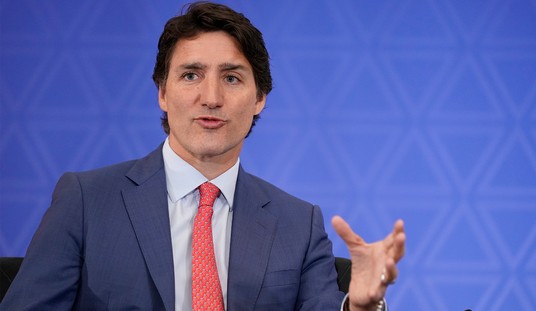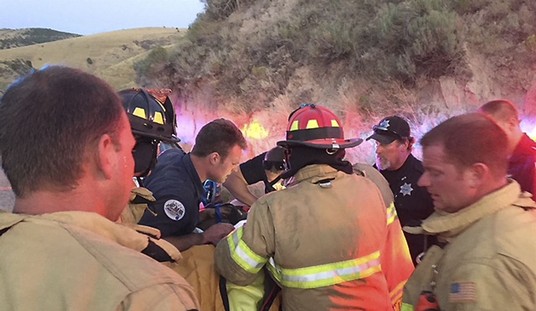By this time most of you have absorbed more than your fill of the ongoing debate over the HSS mandate regarding contraception and the churches. (Including the current brouhaha over the congressional hearings.) Ed and Tina have both weighed in on it repeatedly, along with some aspiring office seekers. I’ve held off, not only because this isn’t really my wheelhouse in terms of political topics, but also due to the many gray areas involved which make answers hard to come by.
The common theme seems to have boiled down to two entrenched battle lines. On one side we have the this is an Obama war on the Catholic Church and religious freedom front. On the opposing side we find the this has nothing to do with religion, it’s about wimmin hating Republicans trying to keep us barefoot and preggers in the kitchen argument. Unfortunately, both of these miss the mark for me. The real issue here, as I see it, comes down to two fundamental points.
The first question we should be asking is, does the federal government have the right to tell an employer – any employer, secular or religious – whether or not they have to provide any form of health care coverage to their employees. My understanding is that, traditionally, such benefits were optional and employers offered them as a way to attract the best workers. In my experience, larger employers would offer a range of plans. A young, healthy, single worker might opt for a bare-bones, disaster prevention plan with a high deductible, co-pays, etc. at little or no cost. A married worker with children might choose a larger, HMO style plan which would require a significant deduction from their paychecks and cover a lot more. But either way, these were optional, so the government telling the employer to provide anything would be a vast overreach.
With the advent of Obamacare, however, this has changed. Now – at least for the time being – the assumption seems to be that this is an area where federal fingers can pry into the benefits plans offered to workers. And until the Supreme Court decides, we should proceed on the assumption that this is the case.
This brings us to the second – and far more tangled – point. And it involves the thorny old question of the separation of church and state. Given my libertarian leanings, my general feelings are that as long as churches are acting like churches, the government needs to keep its nose out of their business. When they are preaching the Gospel, saving souls, etc. they should not be taxed or watched very closely by the government, aside from violations of common criminal law. (This changes when they start trying to influence elections from the pulpit in my opinion, but that’s an argument for another day.)
But what about when they begin engaging in business? There are many people who set up businesses with no religious ties, providing goods or services, and the government is involved in their operations to varying degrees by default. There are taxes to be collected and paid, minimum working conditions and regulations for employees, licenses and inspections… all manner of things. It’s one of the facts of doing business in America.
But what about when the the church stops saving souls and begins going into production? I’ve already asked a couple of lawyers about this and the general consensus is that there is a massive gray area involved once again. The Catholic Church operates schools and hospitals. But so too do a lot of private, secular organizations and individuals. If you set up a private LASIK clinic, should you operate under a different, more restrictive set of rules than a hospital or clinic operated by the Catholic church regarding your employees? If you start up a technical school to train welders, should you bear more of a heavy footprint from Big Brother than a Catholic high school?
What if we’re talking about manufacturing? Could anyone establishing any church at all set up, for example, a factory to manufacture golf shirts? (We’ll just replace the little alligator with a crucifix.) Does that suddenly lift you above most of the scrutiny that Polo endures? I’m honestly not sure about the answers to these questions. The case of Employment Division vs. Smith might lend some small insight to the question, but it seems to run a bit far afield, given that the employee in question was suing the state rather than their employer. The Religious Freedom Restoration Act might also have a few things to say on the subject, but none of it looks like a clear match for the current question.
It would be nice to be some sort of ideological warrior on either side of this question and charge into battle full of righteous indignation. But we need an answer that will hold up in the Supreme Court, not the confessional. If the SCOTUS tosses out the mandate, then all of this will have been made moot, I believe. (And I think they will.) But if they don’t, then these are pressing questions which will have to be answered, and the final argument will have to be better than you can’t tell the priests what to do – at least when they are operating something which looks suspiciously more like a business than a cathedral. And the current state of the HHS ruling leaves the cathedrals out of it.








Join the conversation as a VIP Member